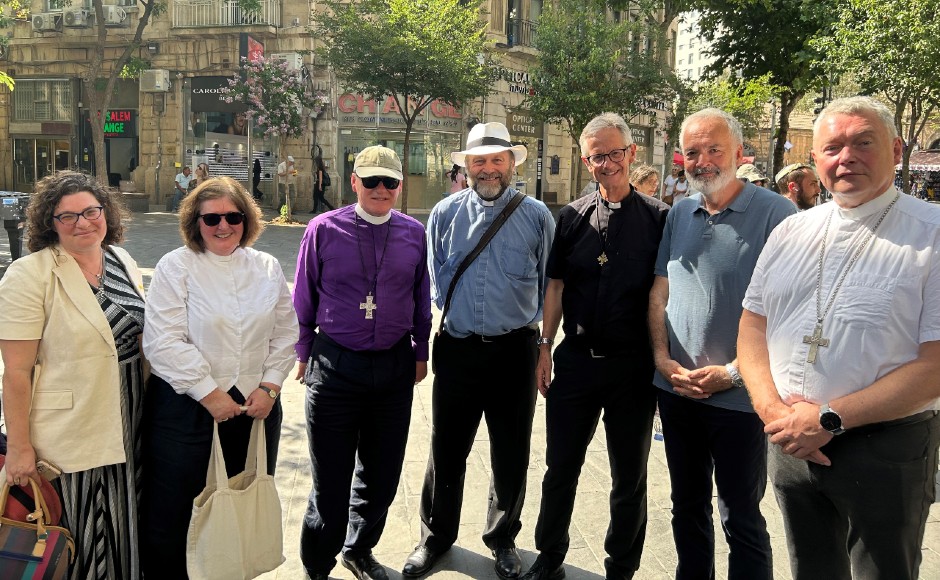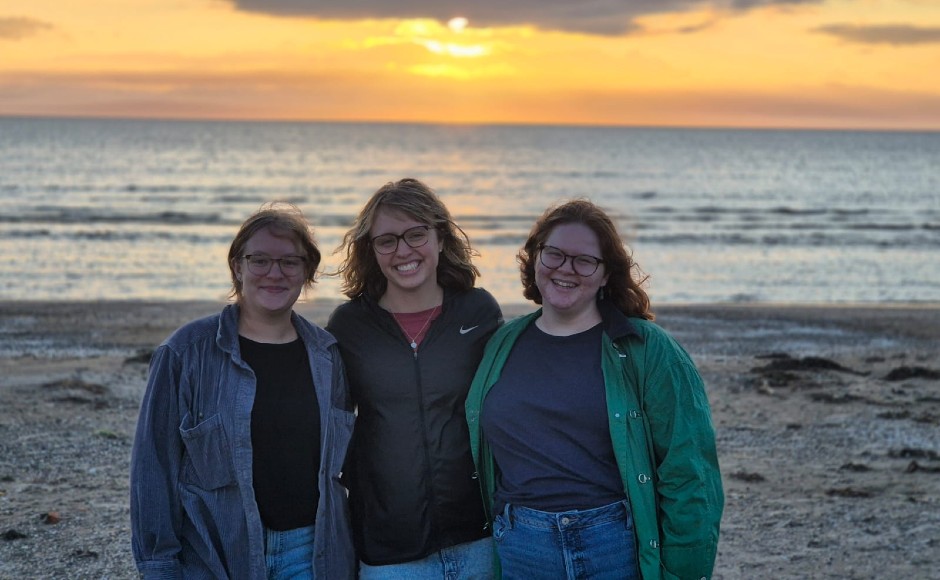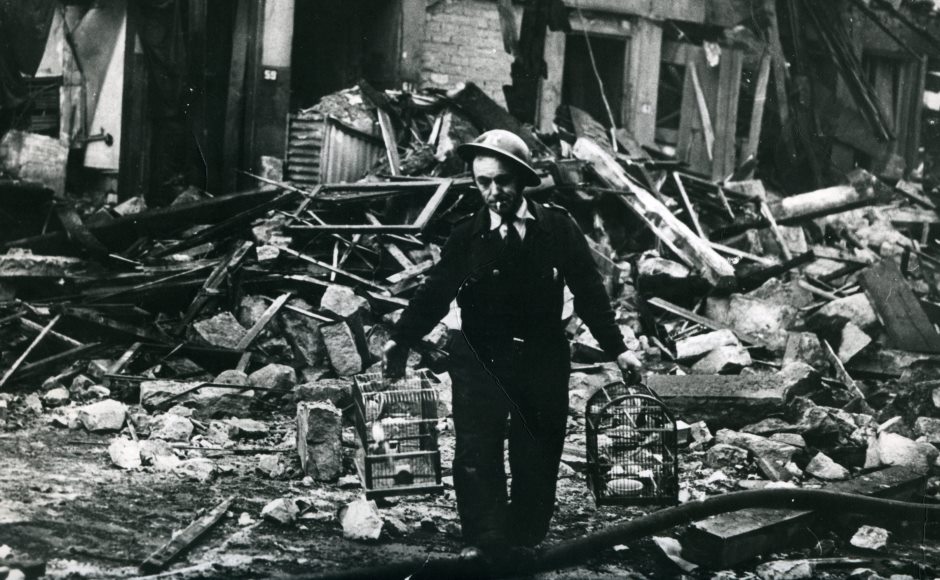Iron Curtain democracy activist ordained into the Church of Scotland
Published on 20 January 2022
A political activist who campaigned for democracy from behind the Iron Curtain as a teenager has been inducted as an associate chaplain at Edinburgh University.
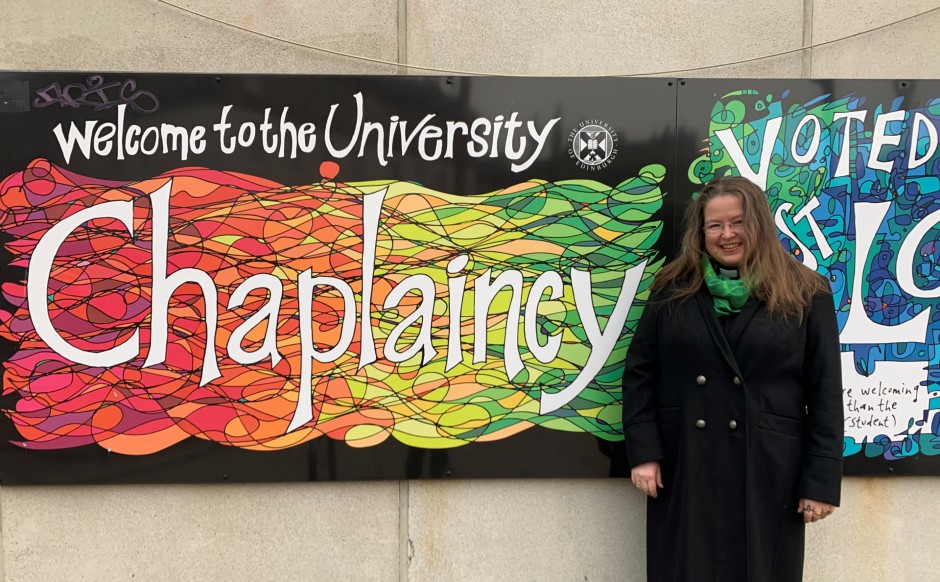
Rev Dr Urzula Glienecke, who first began studying to be a minister in Latvia in the early 90s and attended an underground church, was ordained into the Church of Scotland at Greyfriars Kirk on Tuesday evening.
Her path into ministry was disrupted when, during her theology degree, the Latvian Lutheran Church "changed dramatically" and excluded women from ordination.
"I lost my church home so I moved away to Norway, to Germany -where I met my husband- to Ireland and to Spain," she says.
It was not the first time she had faced a challenge connected to her faith. During her childhood it was dangerous to be a Christian in Latvia because the country was part of the Soviet Union and the communist government was officially atheist. Dissidents, including Christians, were at risk of deportation to camps in Siberia.
"I grew up in a in family of rebels," Dr Glienecke recalls. "My grandmother played the organ for more than 30 years for the Lutheran Church around Latvia in the years when it was dangerous to do so."
"When I was 14 I was interested to know what faith was about so I found an underground church group, which was literally underground in the cellar of a church.
"There is a lot of pain and a lot of violence that I can remember my own family faced growing up in this oppressive system especially being connected to the church."
From the late 80s, Christians in Latvia played an important role in the pro-democracy movement, including taking part in the 'Baltic Chain', a peaceful political demonstration that involved two million people linking arms across Latvia, Estonia and Lithuania.
"We knew it was very dangerous, but we wanted freedom to believe, we wanted to communicate with the world," she says.
"I don't know a single Baltic family who didn't lose a family member either due to being deported to Siberia or having to escape to the West, especially in the early days of the Soviet occupation."
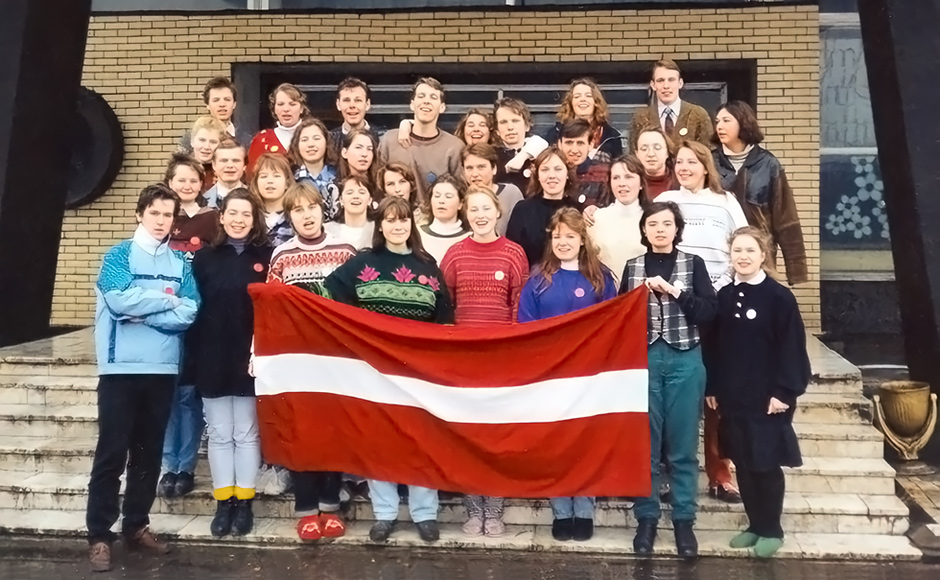
In 1991, as the Soviet Union began to fall, the churches around the centre of Riga were turned into hospitals to cope with wounded protesters who were experiencing violence and even being shot by the military.
"We had barricades around all of the communication centres and the new government and we were praying and singing and keeping warm around fires."
"There were cattle trains at the border so if we lost we would be sent to Siberia to work camps as had happened before."
After her denomination stopped ordaining women, Dr Glienecke continued her studies abroad, earning her PhD at the Jesuit-affiliated Milltown Institute in Dublin. As one of just two protestants studying there, she became deeply involved with ecumenical relations in Ireland.
"It was a special time, and a place where white western people were a minority - I had the opportunity to live and study with people who were African, Asian, and Latin American," she explains.
Whilst living in Spain, Dr Glienecke became aware of the Iona Community in Scotland and eventually was able to move to the island and become a member of staff there.
"I loved the open-mindedness, the inclusivity, the focus on peace-making and justice and the environment," she says.
She was able to complete her journey into ministry after spending time as a probationer at Greyfriars Kirk in Edinburgh, where she was ordained this week.
Speaking about her role within the Church of Scotland, Dr Glienecke feels "very much at home" saying she "loves its democratic nature".
Dr Glienecke describes her chaplaincy work at the University of Edinburgh as "the opportunity of a lifetime" and says her ordination brought her "joy".
"It felt very definitely right and I still can't quite believe it!," she says.
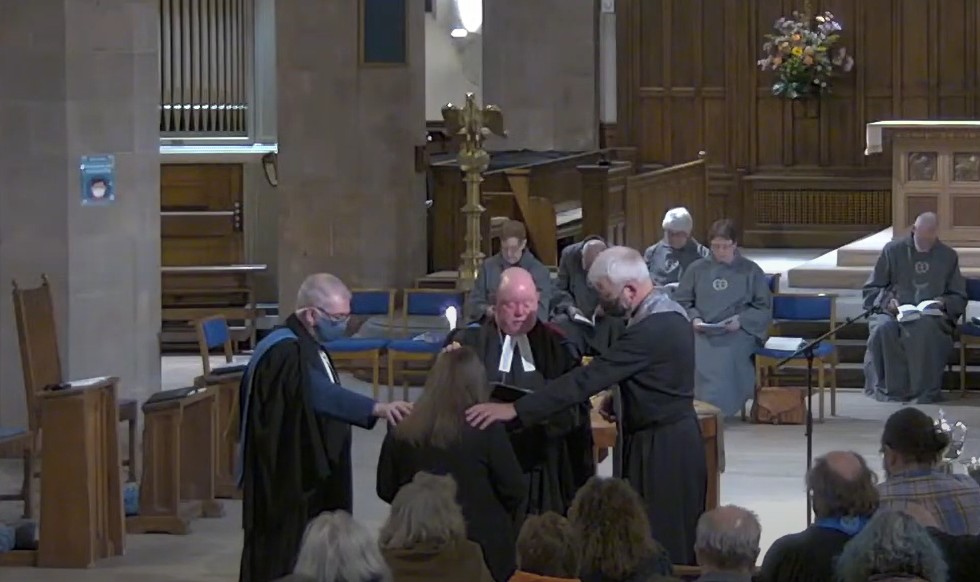
The chaplains run a listening service and are part of an out-of-hours rota providing support for people of all denominations and none across the campus.
"Everybody is welcome to come if they want a listening ear which is non-judgemental.
"Most students who have made an appointment to talk are not connected to church - a lot are international and are people looking for someone openminded who will listen to them and be there for them.
"As part of the role I can bring in the things that are most important to me, such as working for social justice: against racism; against poverty, promoting the environment; supporting LQBTQ+ people; and working with people of other faiths.
"It's a joy to learn from the young people, and people who are really engaged with these things and to walk together with them on these issues."
